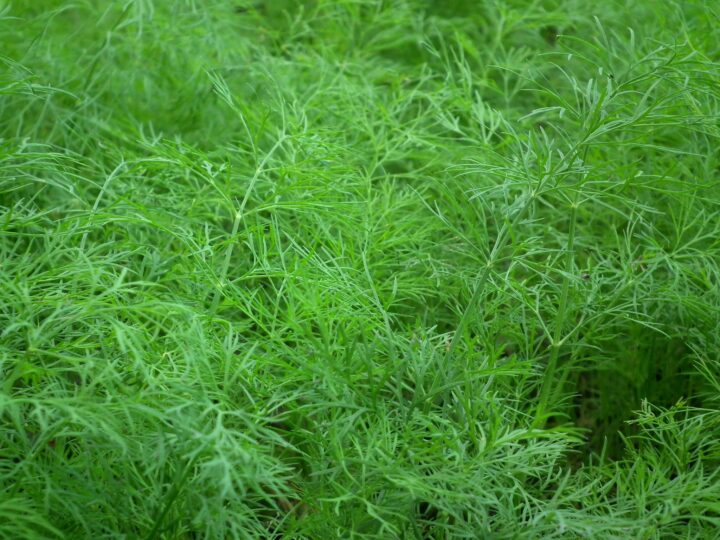Dill (Anethum graveolens) is an herb known for its distinctive flavor and culinary uses. This delicate herb offers bold flavors to everything from fish to beans, and is fairly easy to grow in a garden or even just in a small container! It also offers various health benefits. Here are some of the key health benefits of dill:
Rich in Antioxidants: Dill contains several antioxidants, including flavonoids, terpenoids, and tannins, which help protect cells from damage caused by free radicals and reduce inflammation.
Digestive Health: Dill has been traditionally used to improve digestion. It can help alleviate digestive issues like bloating, gas, and indigestion. Dill seeds, in particular, are known for their carminative properties, which help in relieving gas and preventing constipation.
Antimicrobial Properties: Dill has antimicrobial effects that can help protect against bacterial infections. Some studies suggest that dill extract can inhibit the growth of certain bacteria and fungi.
Bone Health: Dill is a good source of calcium, which is essential for maintaining healthy bones and preventing bone-related disorders such as osteoporosis.
Heart Health: The fiber and flavonoids in dill can help lower cholesterol levels, reducing the risk of heart disease. Dill also contains potassium, which helps regulate blood pressure.
Anti-Inflammatory Effects: The anti-inflammatory compounds in dill can help reduce inflammation in the body, which is beneficial for conditions like arthritis.
Regulates Blood Sugar Levels: Some research suggests that dill may help regulate blood sugar levels, making it potentially beneficial for individuals with diabetes.
Rich in Vitamins and Minerals: Dill is a good source of vitamins A and C, both of which are important for immune function and skin health. It also contains essential minerals such as iron, manganese, and magnesium.
Menstrual Health: Dill has been used in traditional medicine to help regulate menstrual cycles and reduce menstrual cramps.
Freshens Breath: Chewing dill seeds can help freshen breath and may also have mild antiseptic properties that contribute to oral health.
Incorporating dill into your diet can be an easy way to enjoy these health benefits. It can be used fresh, dried, or as seeds in a variety of dishes such as salads, soups, and pickles.
Stephanie Westbrook




